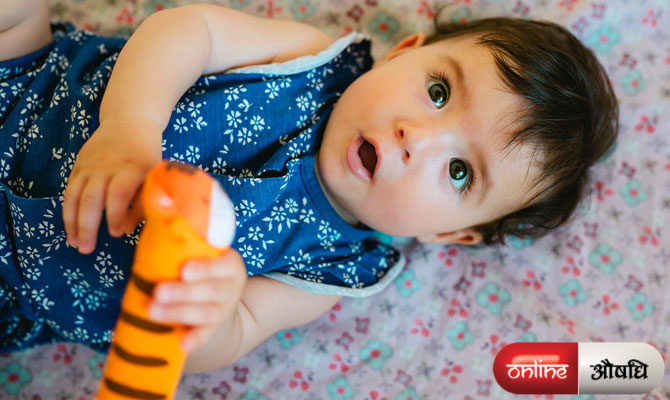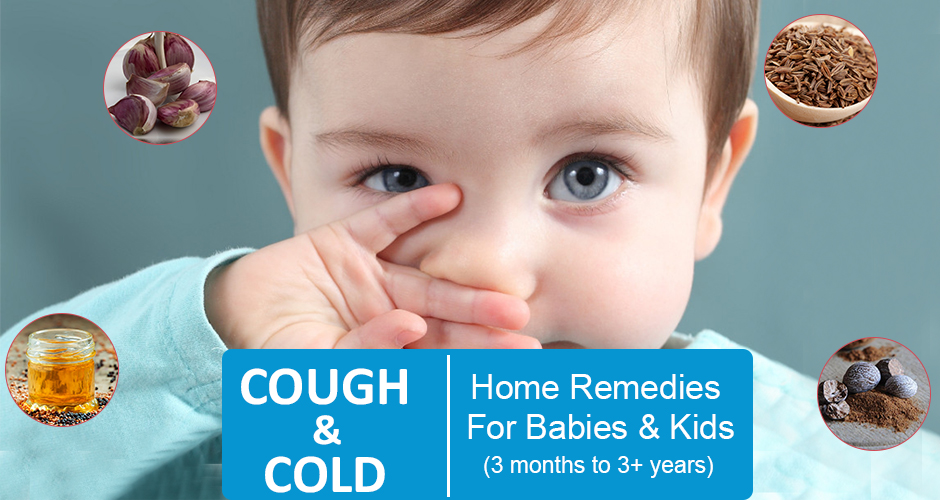The over-the-counter (OTC) drugs for a cough or cold for babies or toddlers is not recommended. Cough and cold medicines that are safe for grownups can cause serious side effects, even life-threatening ones in children under age 2.
If your baby or toddler is sniffling or coughing, try these methods. They’re all drug-free and safe:

Try Saline Drops:
When your child’s nose is stuffy, she may have trouble breathing, sleeping, and eating. Saline nasal drops can thin the mucus in her nose and shrink swollen airways. Use them two or three times per day; any more often could make her nose sore.
Saline drops may make it easier to remove mucus from your child’s nose. For babies, try a suction bulb. If your toddler can blow her nose with your help, give that a try.
Increase Fluids
When your child isn’t feeling well, give more drinks than usual. Extra fluids can thin out her mucus so her nose won’t be as stuffy and she’ll cough up all that gunk more easily.
Most drinks, like water, juice, and milk, are fine. Warm liquids like chicken soup, apple cider, or hot chocolate can soothe a sore throat. Be sure they’re warm, not hot, to avoid burns.
Babies under 6 months should only drink breast milk or formula, not water or juice. But you may offer more milk than usual for coughs or colds.
Give a Little Honey
It soothes sore throats and eases coughs. It may even work better for children than OTC cough medicines. Give your child 1/2 teaspoon of honey before bedtime. But never give it to a child less than a year old. It can make them very ill.
Raise Baby’s Head
Sleeping with extra pillows will ease to breathe more easily when your baby have a stuffy nose . Simply place a pillow or folded towel under the head of your baby’s mattress to create a slight angle. This will raise her head safely and help her to breathe.
Use a Humidifier
Moisture in the air makes it easier to breathe, so run a humidifier in your child’s bedroom at night. Cool-mist models are safer than those that produce steam.
Hot shower
Put your baby to your bathroom with hot shower open for few minutes. Moisture in the air makes your baby easier to breathe
Lower Fevers
Some colds and coughs come with a slight fever. If your baby or toddler has a fever, follow these steps:
- Babies under 1 month: Call your pediatrician. Fever isn’t normal.
- Babies under 3 months: Call the doctor for advice.
- Babies 3 to 6 months: Give paracetamol every 4 to 6 hours as needed.
- Babies 6 months or older and toddlers: Give paracetamol every 4 to 6 hours or ibuprofen every 6 to 8 hours. Don’t give both drugs at the same time.
Serve Easy-to-swallow Foods
Babies and toddlers with scratchy, sore throats often don’t want to eat because it hurts to swallow. Feed them foods that go down more easily.
Toddlers and babies who eat solids may prefer soft, smooth foods. Try pudding, yogurt, or applesauce.
If they prefer warmer foods, try chicken broth or freshly made pudding. Babies 6 months and younger should stick with breast milk or baby formula.
These are just a few easy ways to soothe your little one’s cough or cold. Try them instead of over-the-counter medicines.
Reference : webmd.com






